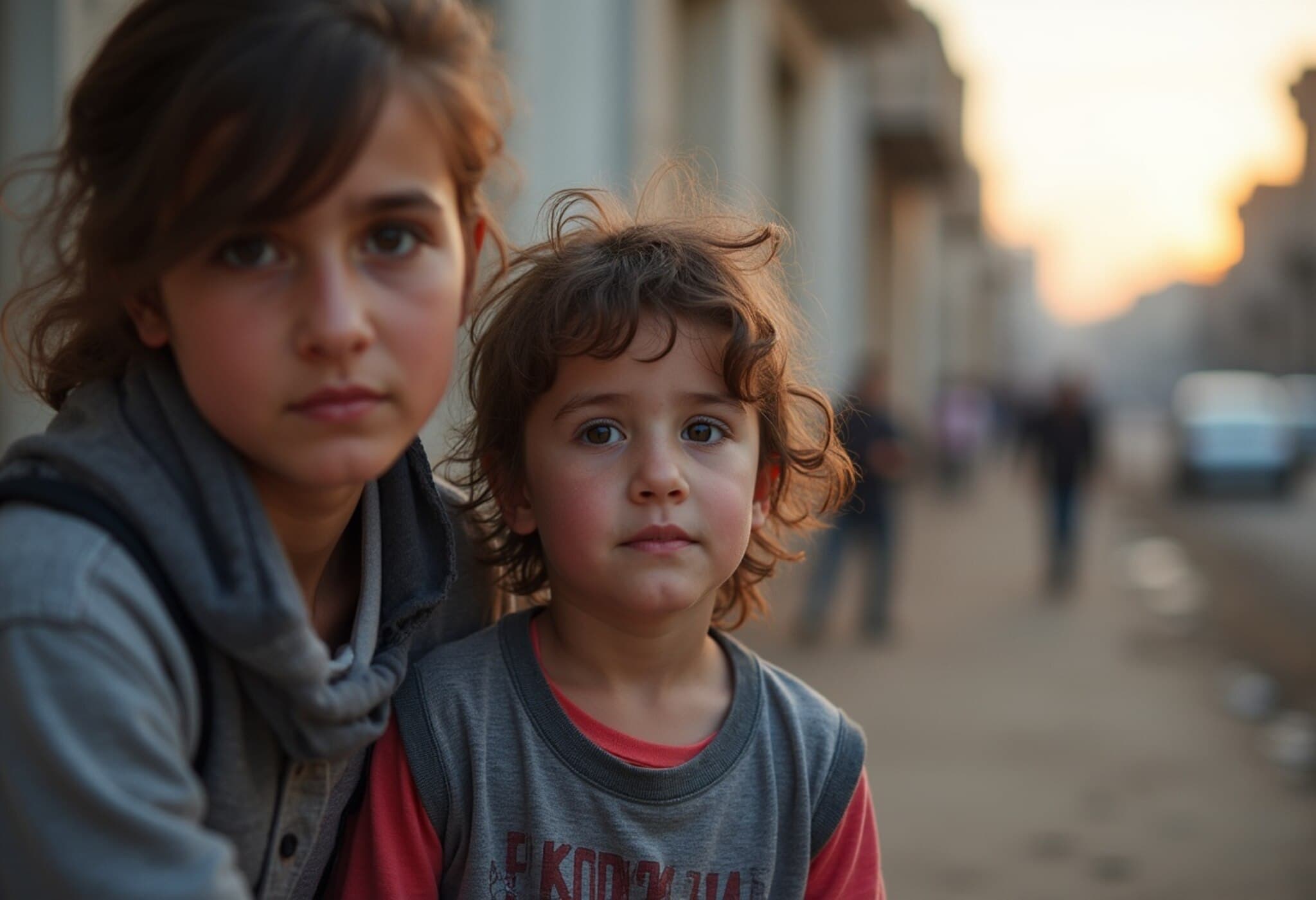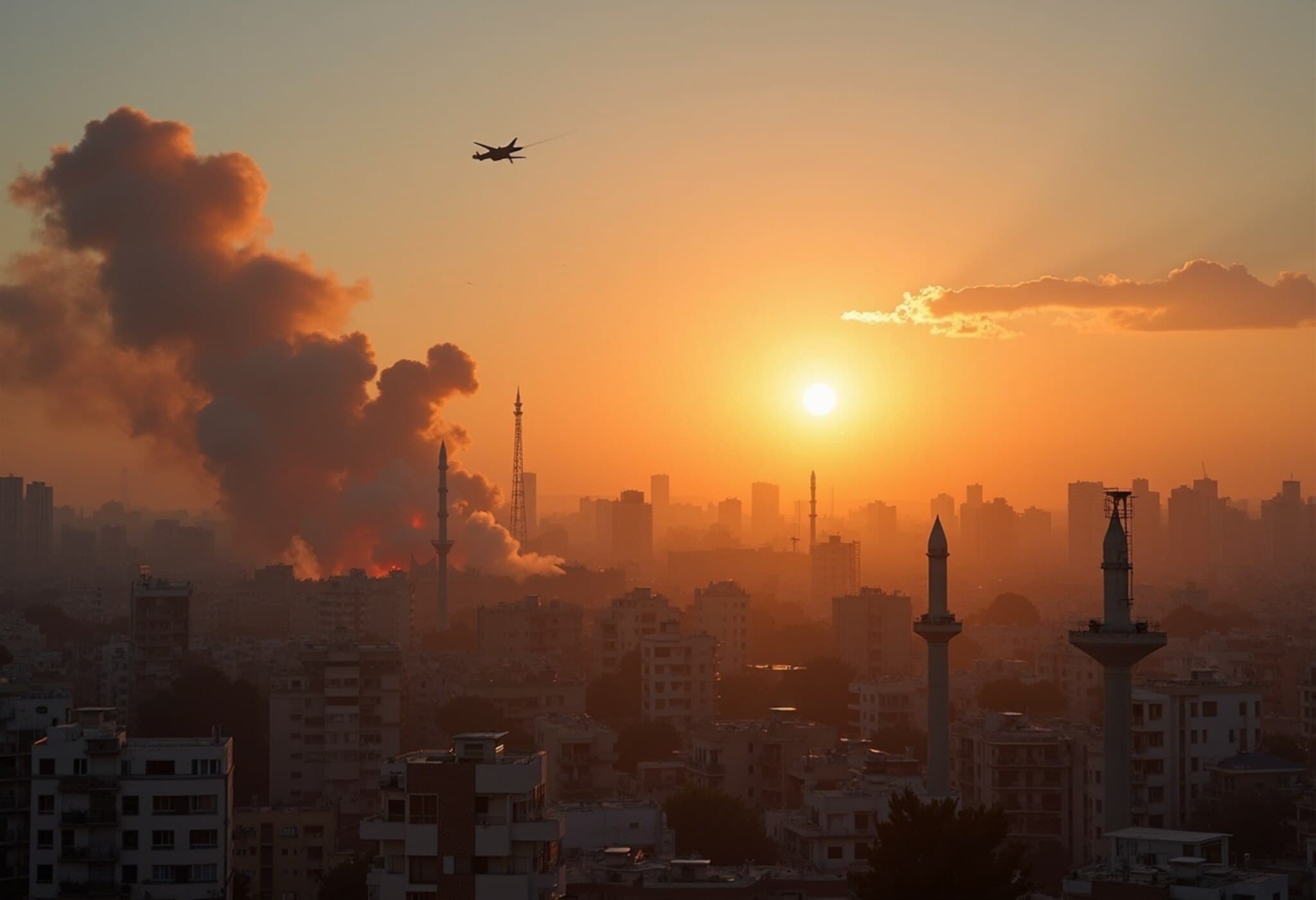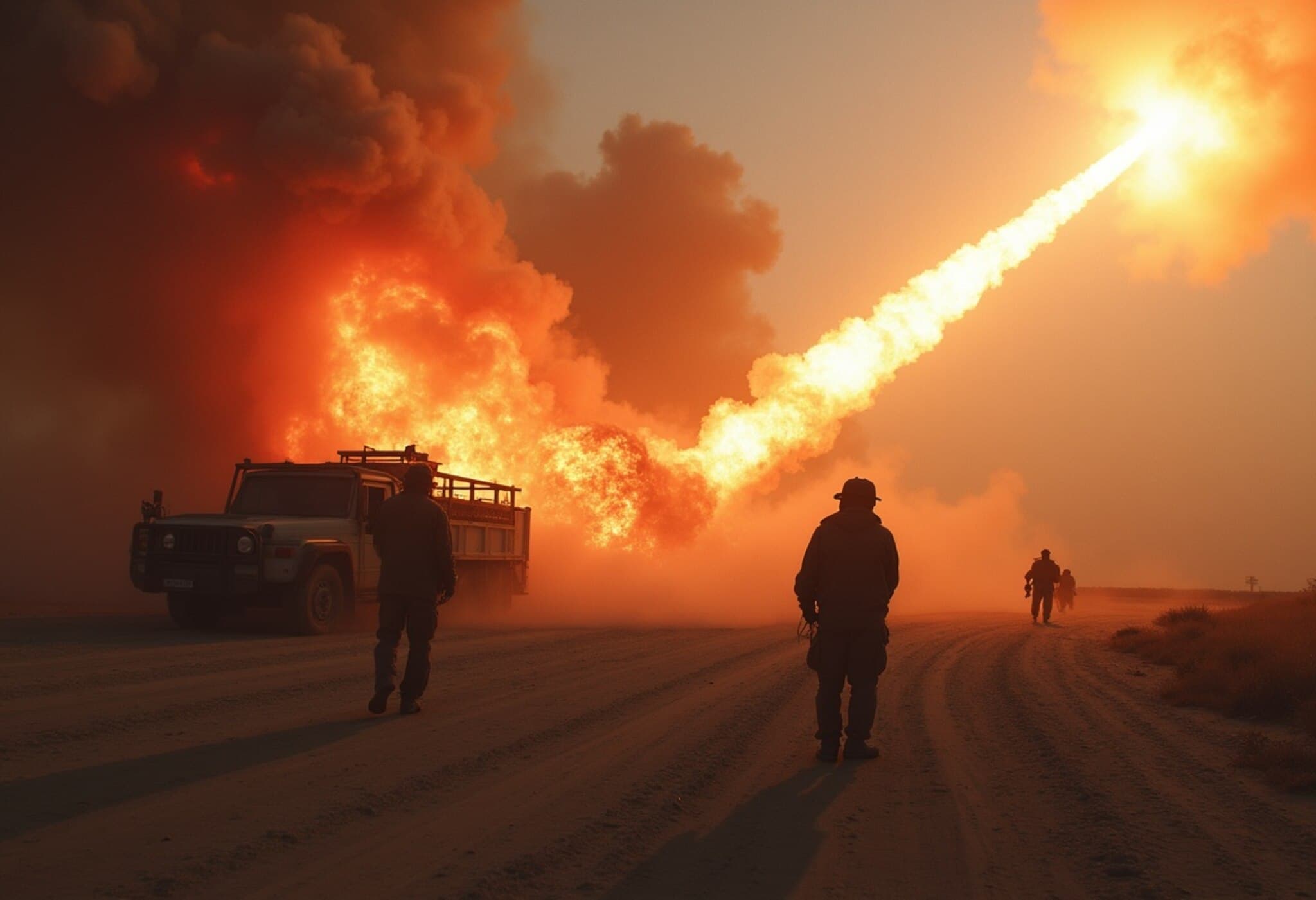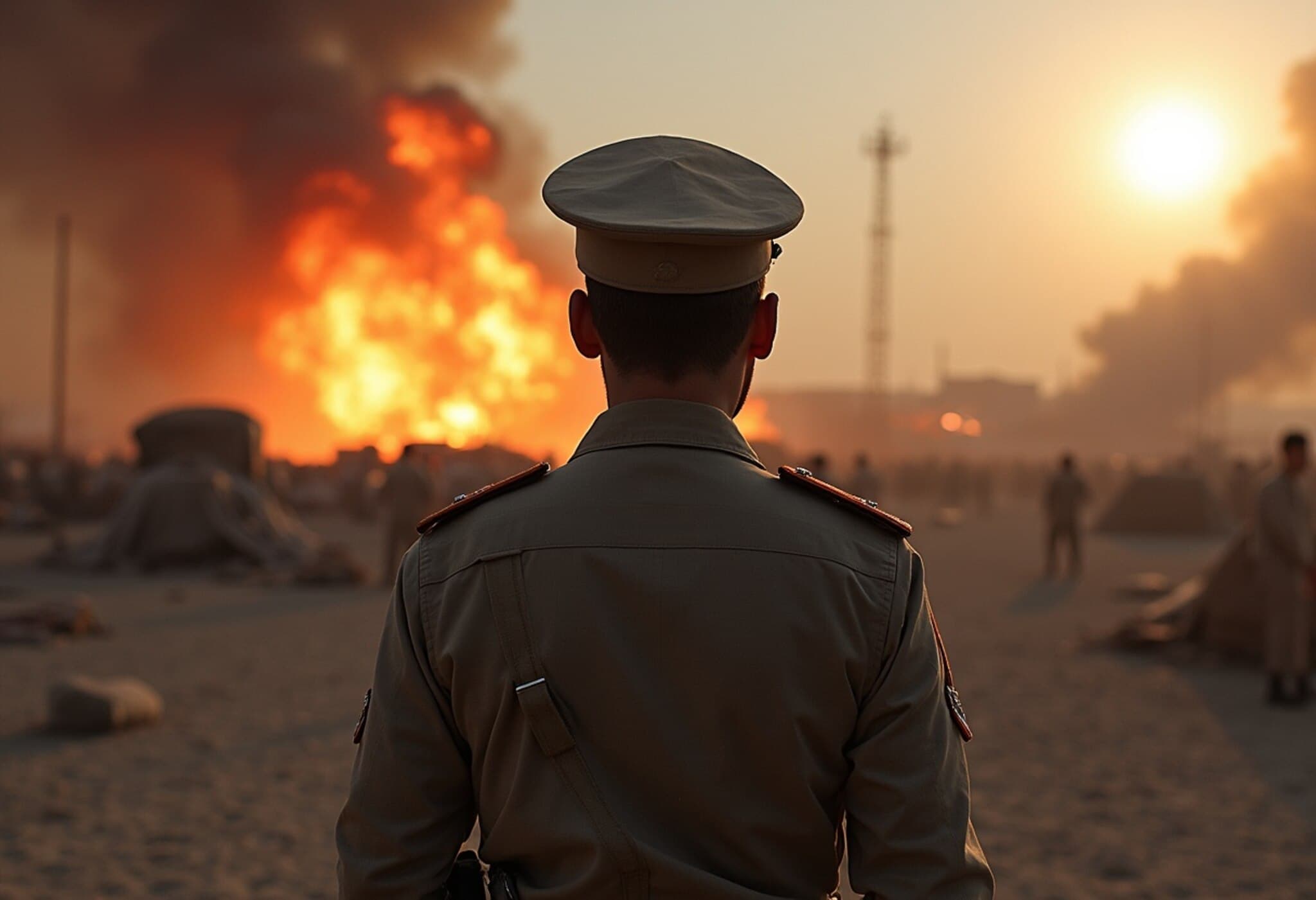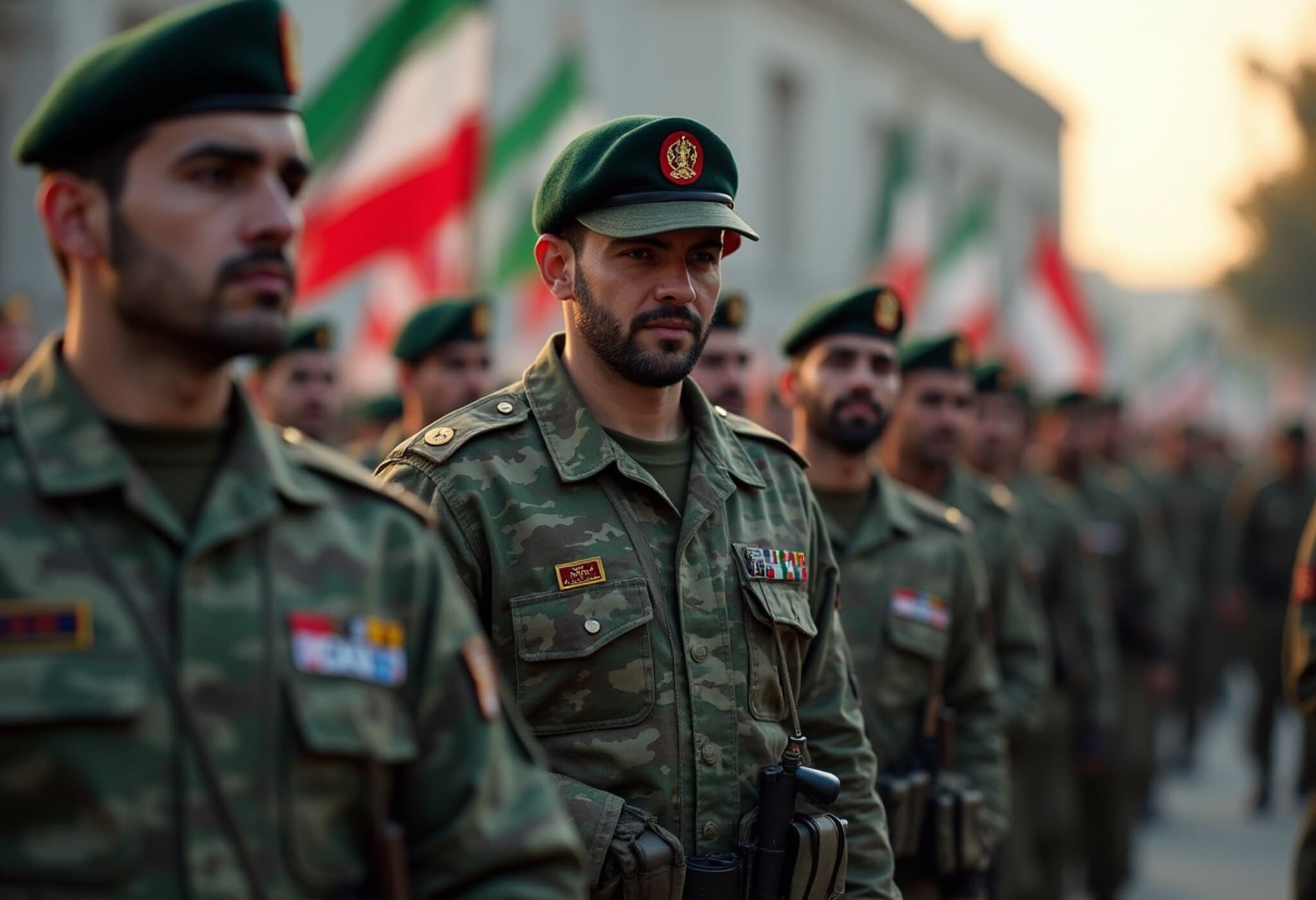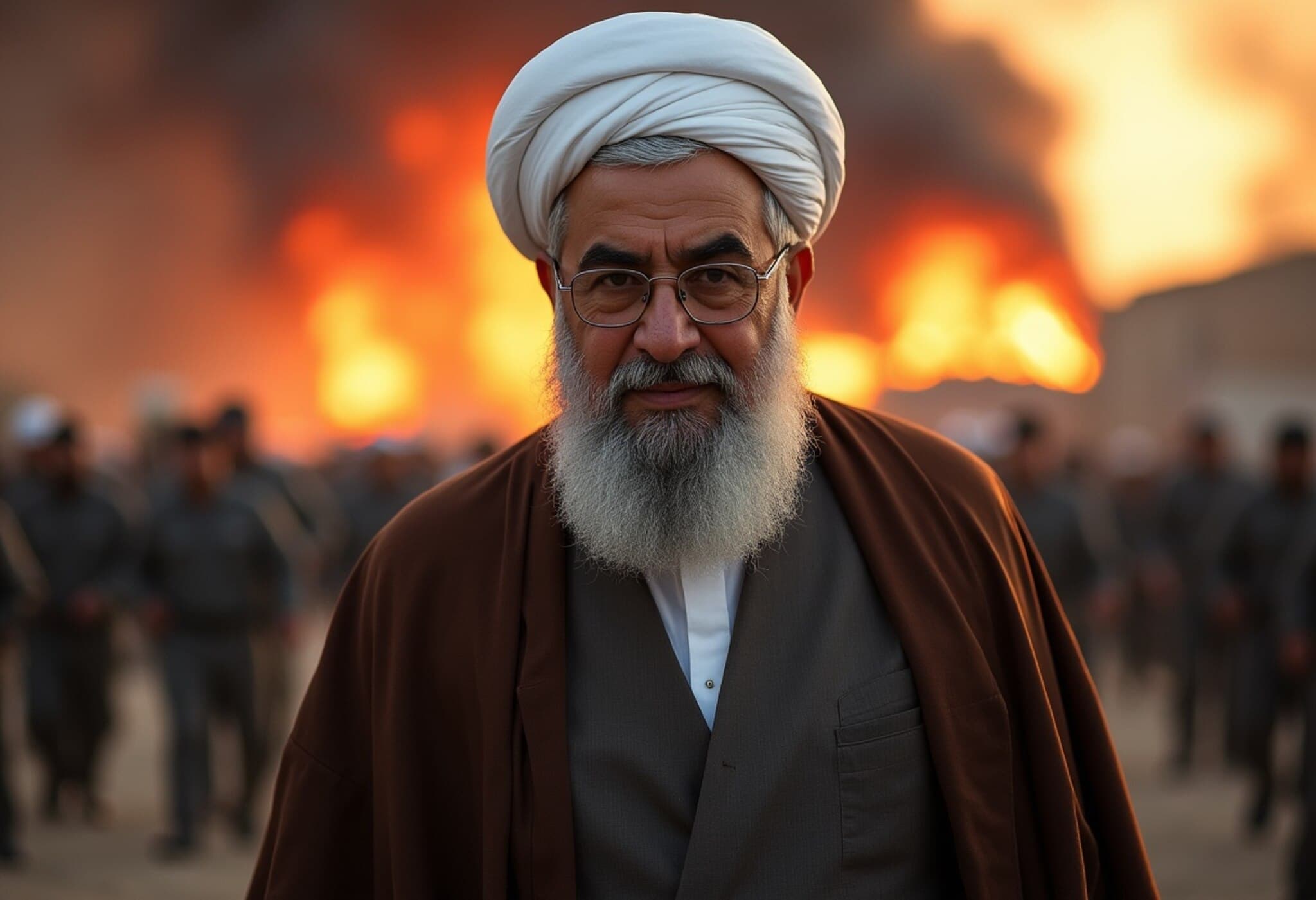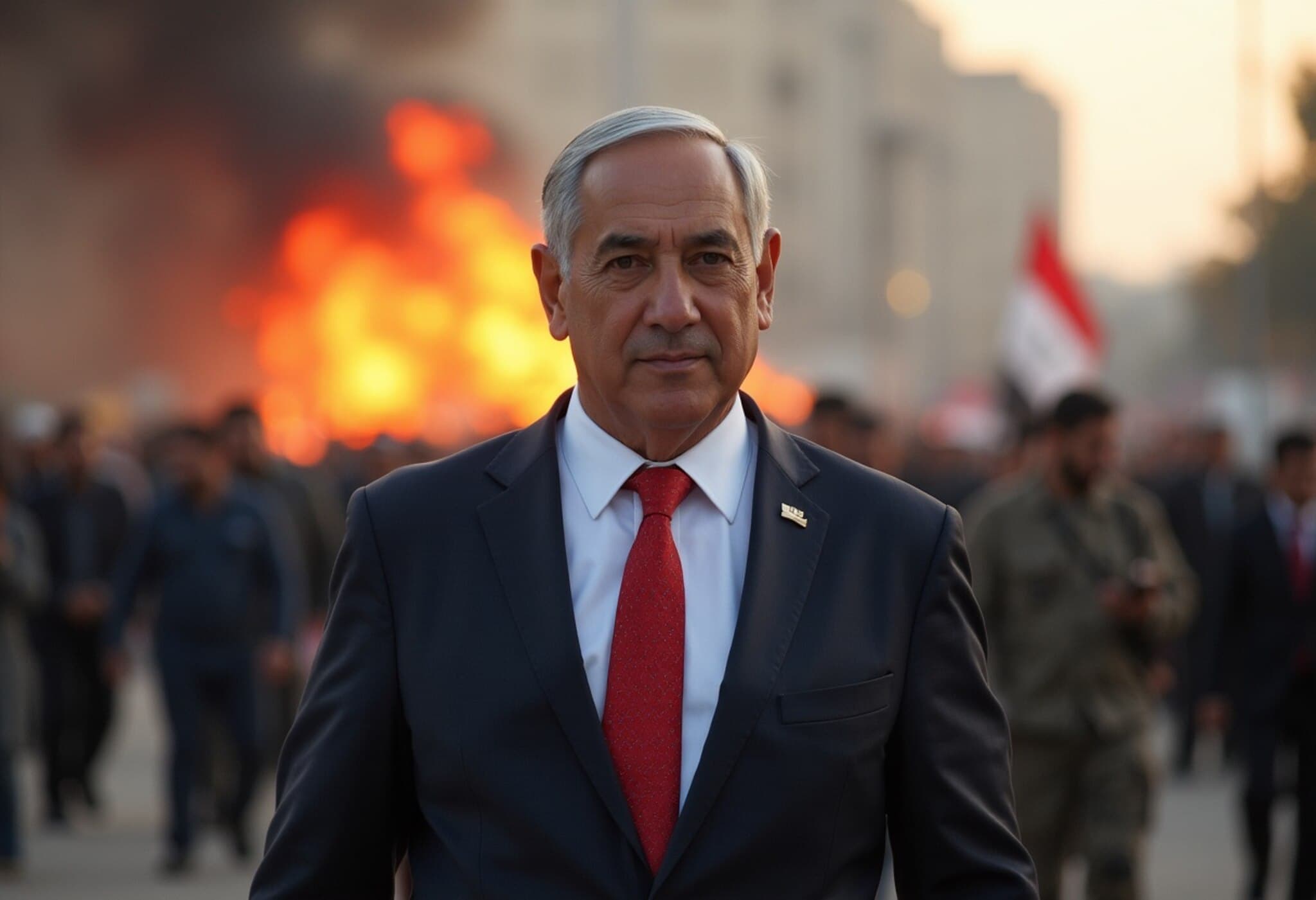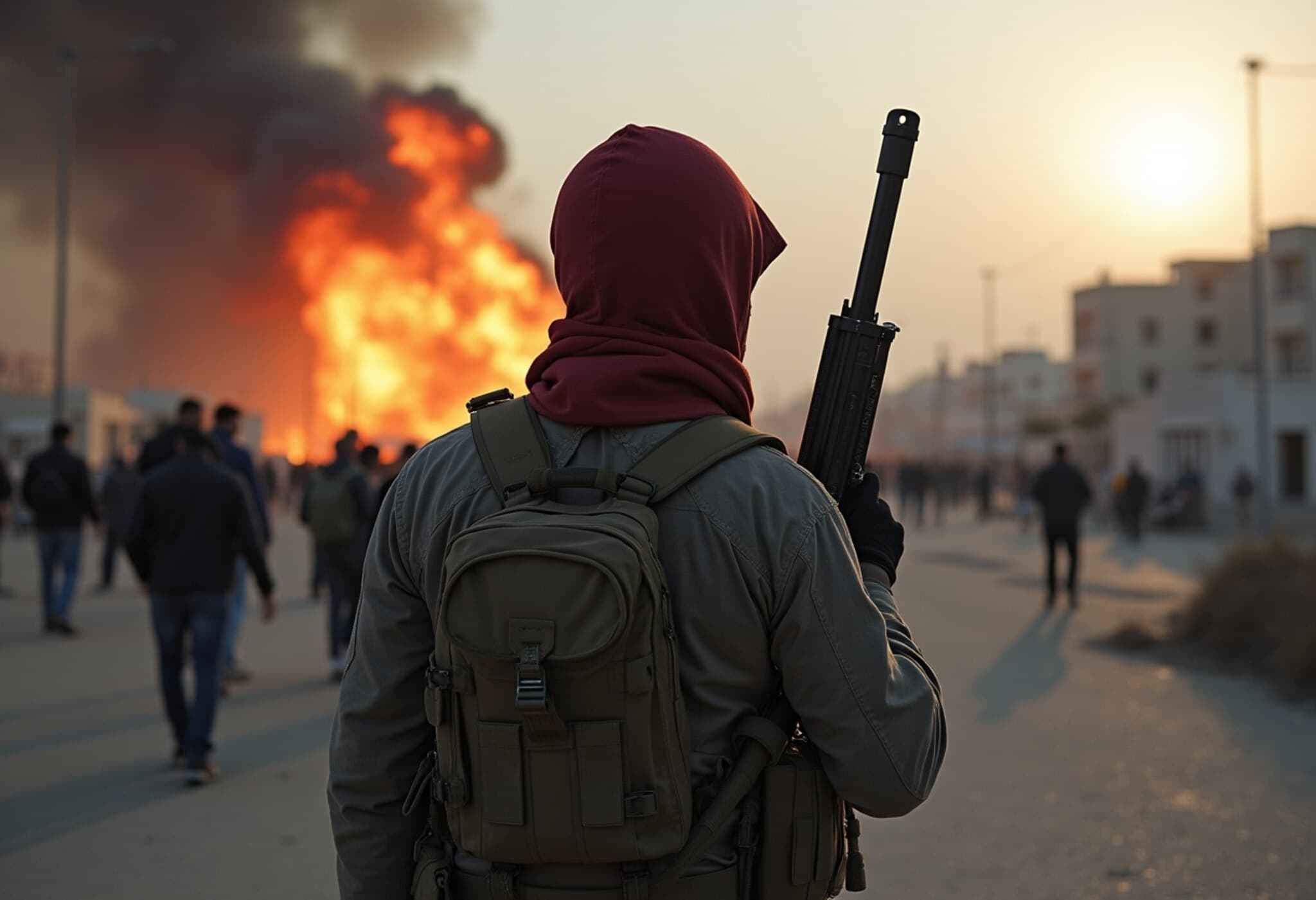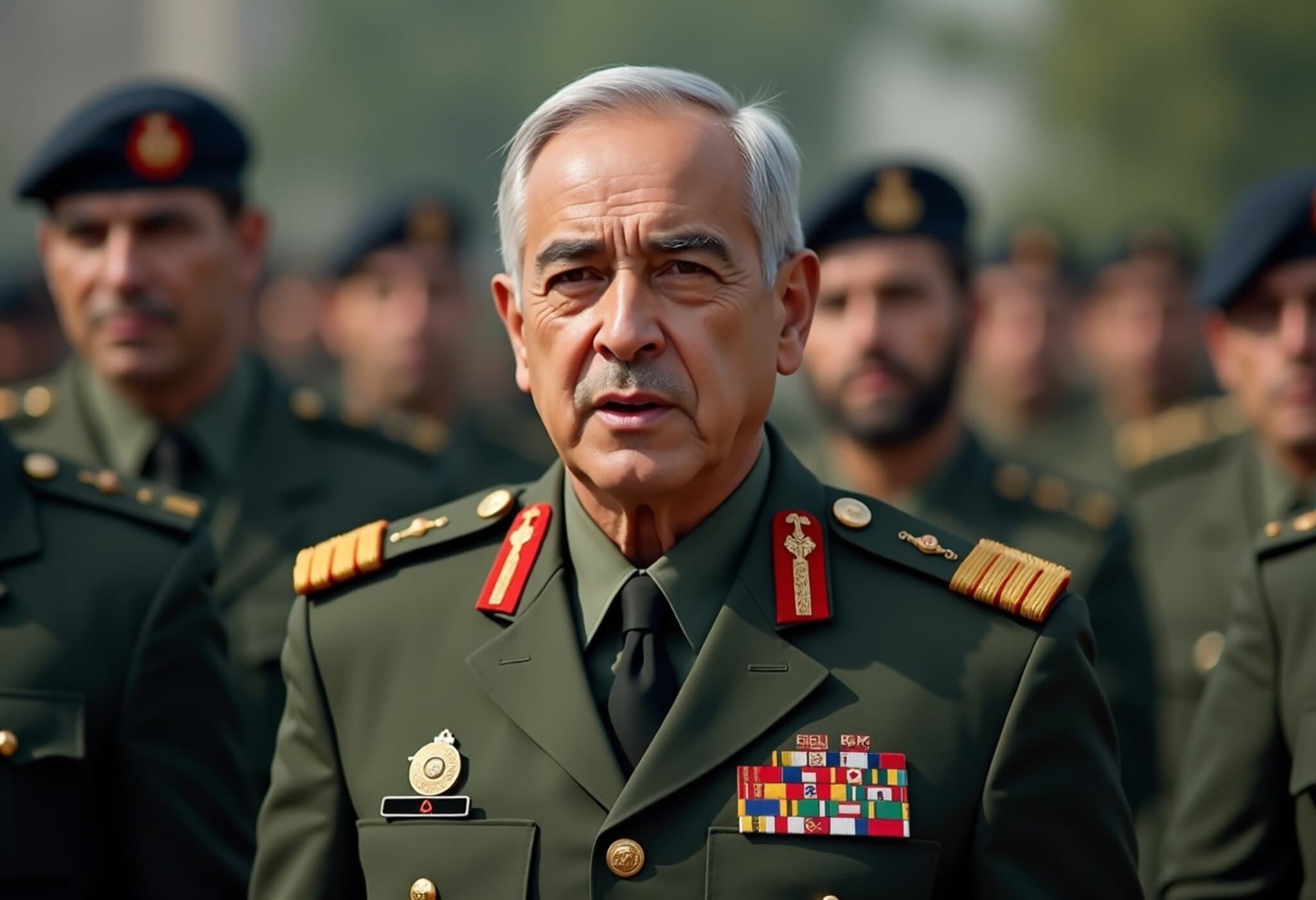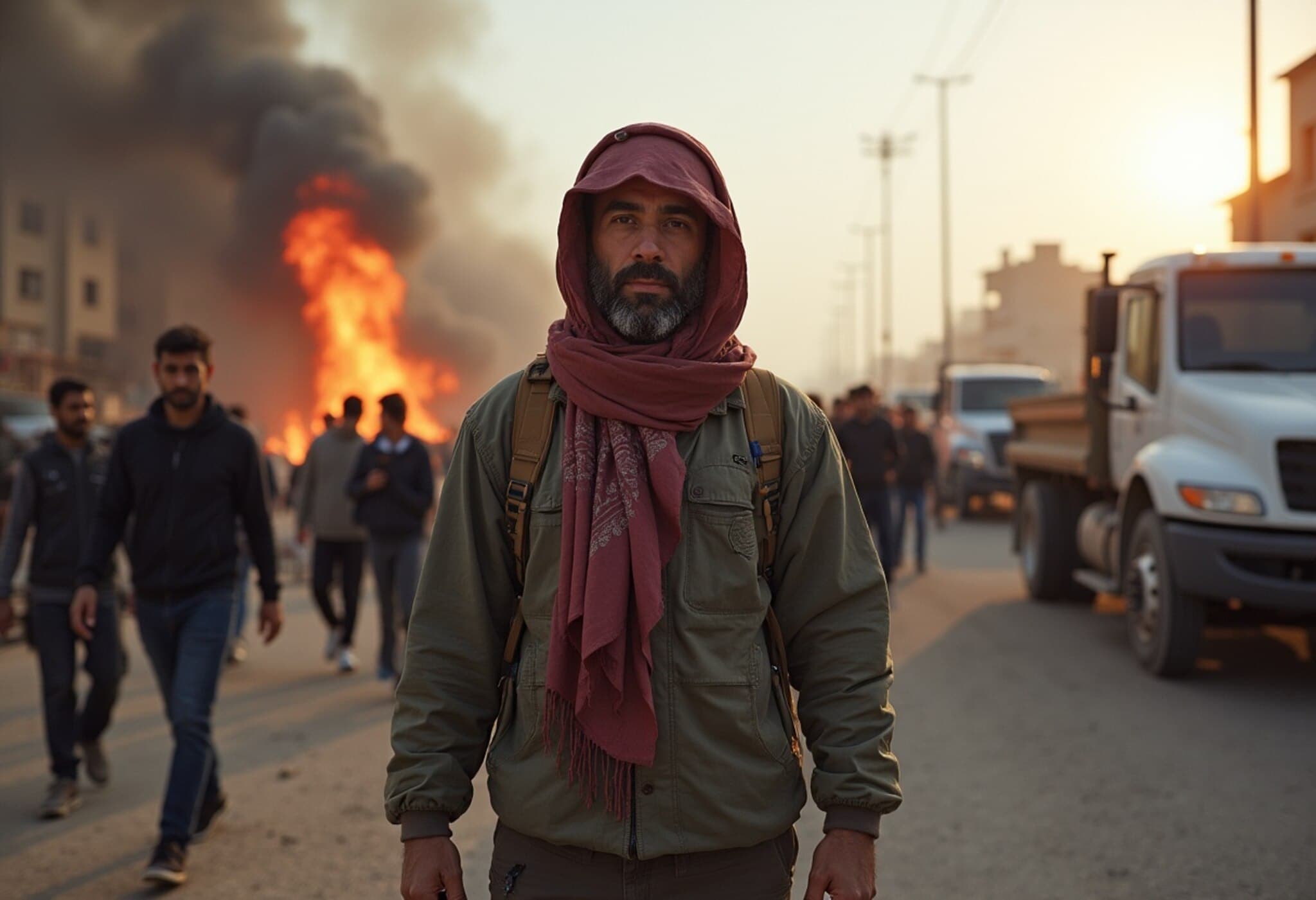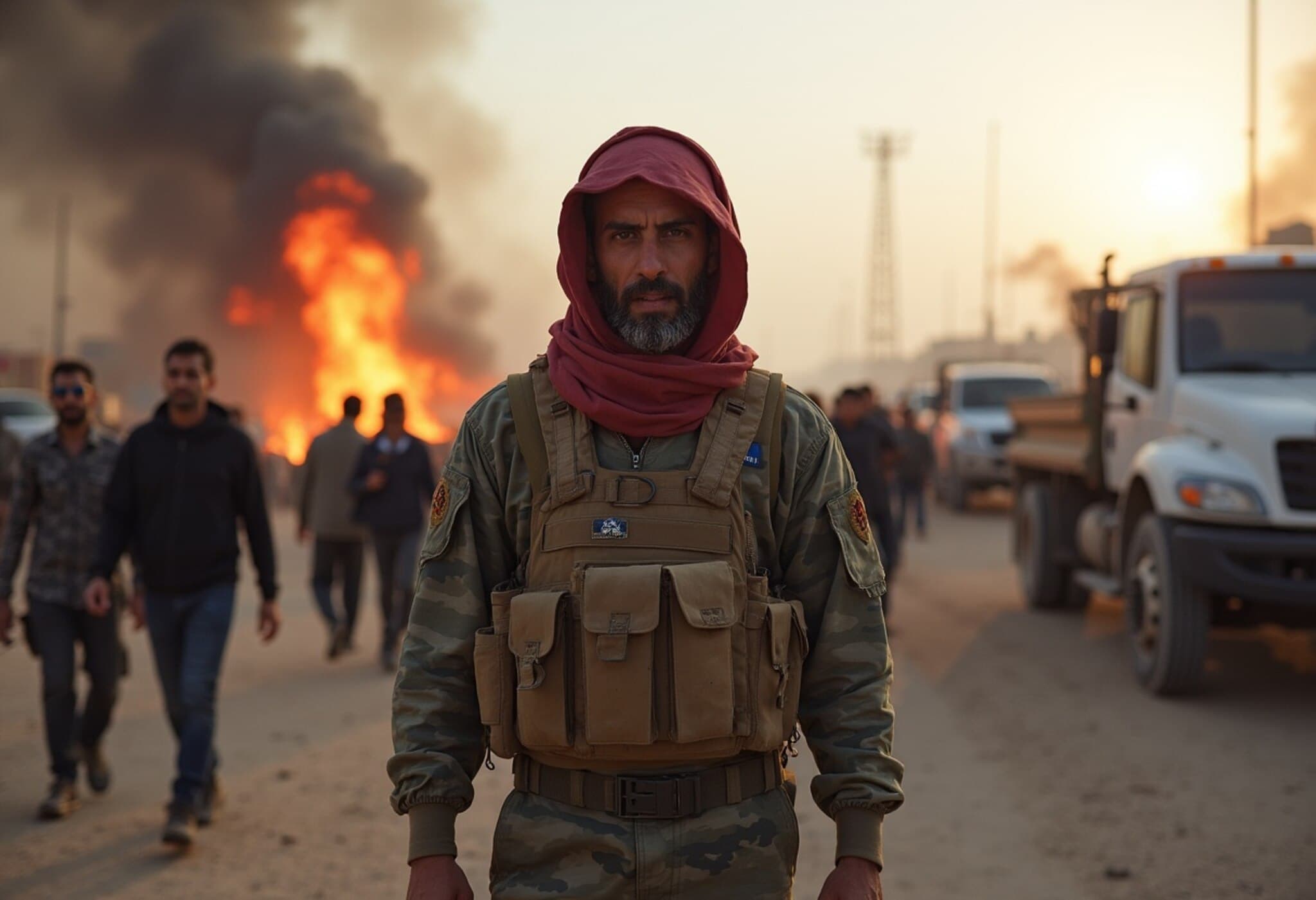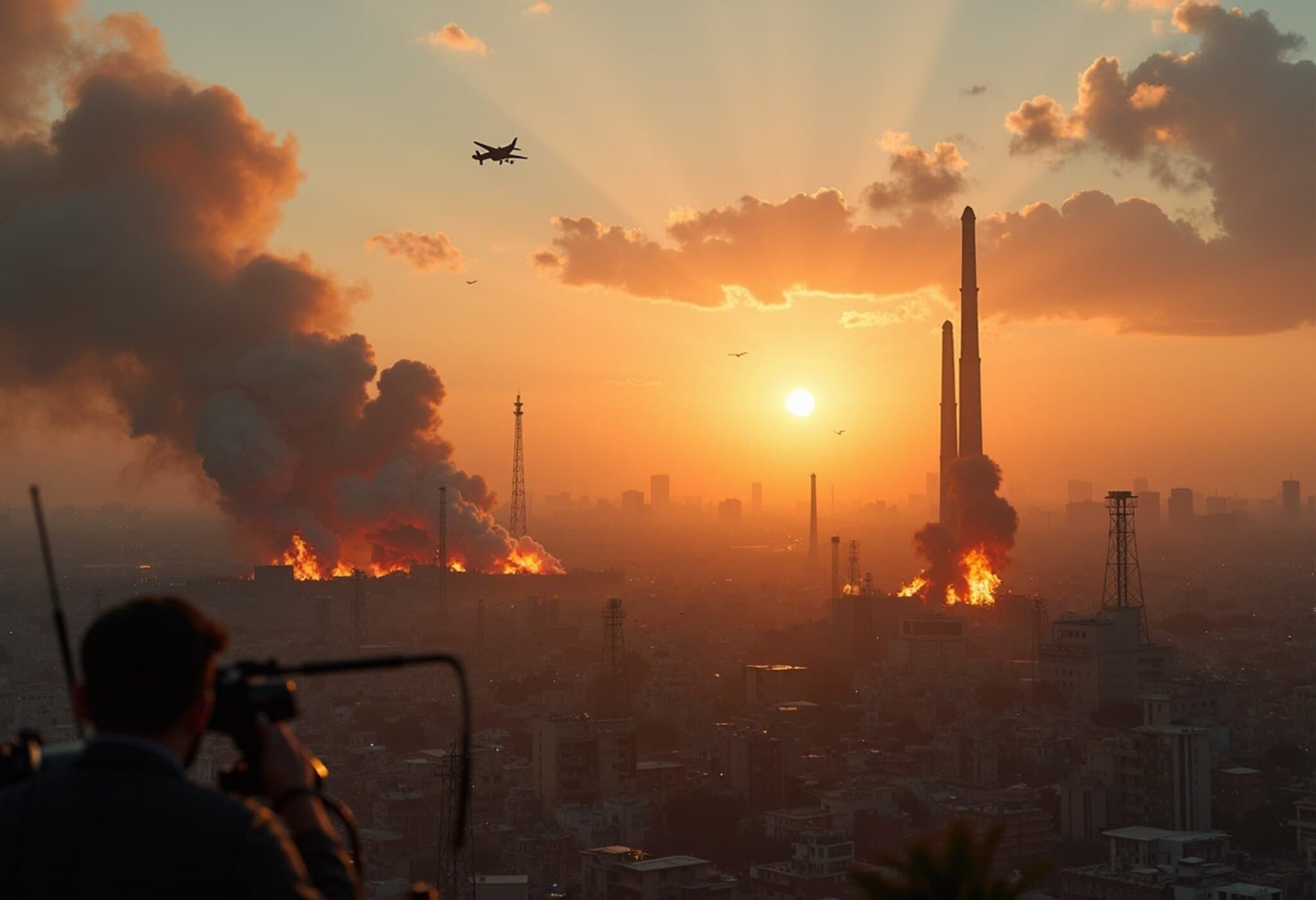Tragic Airstrike Claims Lives of Ten Children Near Gaza Medical Center
In a harrowing blow to civilians in the Gaza Strip, an Israeli airstrike struck near a US-backed medical clinic in Deir al-Balah, killing 10 children along with six adults. The attack sent shockwaves through the already beleaguered community, highlighting the devastating human cost amidst ongoing ceasefire negotiations.
Devastating Impact on Families and Medical Facilities
Video footage verified by multiple sources captured the grim aftermath: bodies of women and children lying motionless amid dust and pools of blood, evocative of the crushing toll war levies on innocent lives. One striking image showed children slumped on a donkey cart, stark evidence of the chaos underpinning the conflict.
Samah al-Nouri, grieving beside her daughter’s body at a hospital, voiced a heart-wrenching plea: “She didn’t do anything, she was innocent. Her dream was for the war to end so she could return to school.” Her daughter's presence at the Project Hope-run clinic was for nutritional supplements, underscoring the indiscriminate nature of the tragedy.
Military Claims and Investigations Underway
The Israeli Defense Forces (IDF) stated that the strike targeted a militant involved in the Hamas-led attacks of October 7, 2023, which ignited the current conflict. The military acknowledged reports of civilian casualties in the incident and confirmed an ongoing review. This raises urgent questions about the accuracy of intelligence and precautionary measures in densely populated civilian areas.
Humanitarian Crisis Deepens in Gaza’s Health Sector
Project HOPE, the US-based aid organization operating the affected clinic, expressed deep sorrow: “Horrified and heartbroken cannot properly communicate how we feel anymore.”
Gaza’s healthcare infrastructure, already strained from prolonged warfare and resource scarcity, faces unprecedented challenges. Hospitals, including the al-Shifa hospital in Gaza City, report critical shortages of fuel threatening vital services, from incubators caring for premature infants to emergency care. Dr. Mohammed Abu Selmia, al-Shifa’s director, revealed that multiple premature babies are being forced to share one incubator, a grim indicator of the collapsing healthcare system.
- Fuel deliveries have recently resumed, but U.N. officials warn these are insufficient to meet ongoing needs.
- The sustained bombardment has resulted in thousands of casualties and hundreds of deaths, overwhelmingly civilians, according to local health data.
Diplomatic Efforts Continue Amid Fragile Ceasefire Talks
At the heart of the conflict lies a tenuous peace process mediated in Qatar involving Israel and Hamas negotiators. While discussions focus on a US-brokered 60-day ceasefire and hostage release plan, senior Israeli officials caution that a comprehensive agreement remains at least weeks away.
US Secretary of State Marco Rubio offered cautious optimism, stating, “We’re closer than we’ve been in quite a while.” Yet, Palestinian officials express frustration over unresolved issues, including Israeli military presence post-ceasefire and long-term political arrangements.
The Human Cost: Beyond the Headlines
The toll of the conflict is staggering: Palestinian health authorities report over 57,000 deaths since hostilities resumed, with most victims civilians. The initial Hamas attack in October 2023 killed approximately 1,200 Israelis and led to the hostage crisis that remains central to negotiation impasses.
The violence is not confined to Gaza alone. The occupied West Bank continues to experience deadly clashes, exacerbating regional instability.
Expert Insight: Navigating the Path to Lasting Peace
This tragic airstrike illustrates the profound difficulty of conducting military operations in densely populated urban environments, where militants and civilians live side by side. The loss of children at a medical clinic erodes public trust and underscores the urgent need for robust safeguards to protect noncombatants.
For policymakers, the incident highlights three crucial challenges:
- Verification of Intelligence: Accurate targeting intelligence must be prioritized to minimize collateral damage.
- Humanitarian Access: The devastation of health infrastructure demands renewed international commitment to safeguard and supply medical facilities.
- Political Dialogue: Both parties must reconcile immediate security concerns with long-term political solutions addressing occupation, governance, and rights.
The international community’s role is vital — balancing pressure to cease hostilities while supporting humanitarian relief and fostering diplomatic avenues. The question remains: will these tragic losses at the hands of war catalyze meaningful change, or are they a somber repetition of an unresolved conflict?
Editor’s Note
The killing of innocent children near a US-supported clinic in Gaza is a stark reminder of the human toll behind geopolitical headlines. Beyond numbers and reports, each lost life ripples through families and communities, demanding accountability and renewed commitment to peace. As negotiations continue amid deep mistrust, readers should consider the complexity of protecting civilians during conflict and the imperative for transparent investigations into such tragedies.
This evolving story underscores an ongoing dilemma: how can military necessity be reconciled with humanitarian principles, especially when children and medical facilities become casualties? Our collective humanity requires vigilance, informed dialogue, and persistent advocacy for an end to cycles of violence that devastate vulnerable populations.

